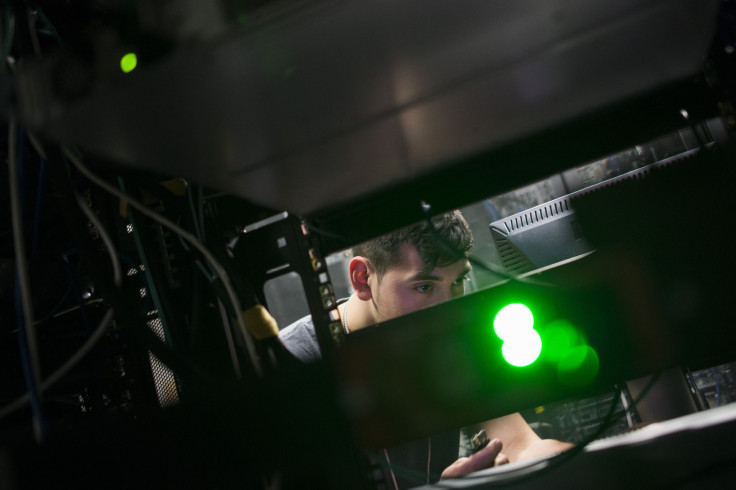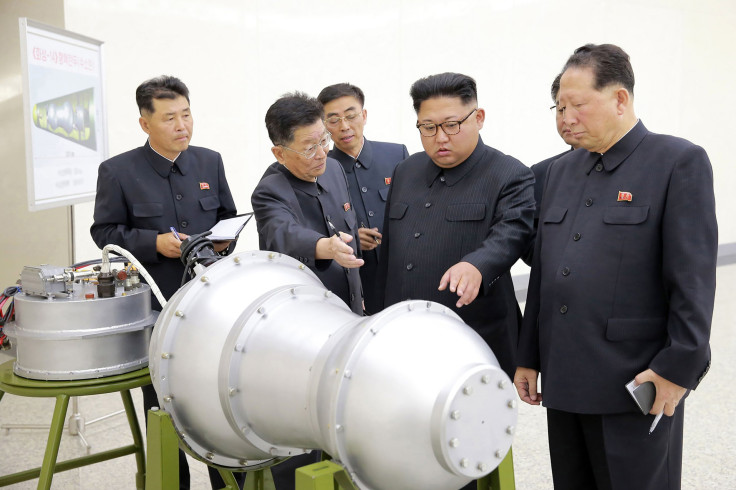US Cyberattacks On North Korea Precede Military Options, Former Intelligence Experts Say

As North Korean leader Kim Jong Un flaunts the progress his country has made in military might and latest weaponry, former intelligence experts have said that if the United States had to wage a war against Pyongyang, the first attack will be a digital one.
“The first shot will be cyber,” one of the former intelligence officials told Foreign Policy Magazine on condition of anonymity.
The official added that in the past six months, the United States has secretly been in talks with allied countries like South Korea and Japan to lay the foundation for launching cyberattacks against North Korea as and when needed.
Preparation for an attack involves "installing fiber cables as bridges into the region and setting up remote bases and listening posts, where hackers may attempt to gain access to a North Korean internet that’s largely walled off from external connections," the FP Magazine report stated.
That’s not all. Millions of dollars’ worth of military resources including signals intelligence, overhead imagery, geospatial intelligence, and other technical capabilities have been redirected toward Pyongyang as part of what one former intelligence official called "wholesale" shifts taking place.

Military intelligence analysts kept in reserve by the U.S. are being reassigned to focus on North Korea. The present shift in demand includes a hunt for analysts who speak the Korean language. “If you’re an Africa analyst, you’re f-----,” one former official, with knowledge of the developments, said.
Agents from both the Central Intelligence Agency (CIA) and the Defense Intelligence Agency (DIA) were reassigned in recent months to programs that focused on developing strategies against North Korea.
CIA Director Mike Pompeo confirmed the rumors that began in November 2017, stating he was funneling agents to the new Korea Mission Center, established in May last year.
“The Administration has made North Korea a top priority, and the CIA established its Korea Mission Center to harness the full resources, capabilities, and authorities of the Agency to address the threat posed by Kim Jong Un and his regime,” CIA spokesman Jonathan Liu said. “We shift resources as appropriate to tackle our most pressing challenges.”
Similarly, DIA experts said workers dedicated to counter-terrorism and counter-narcotics departments were getting new assignments related to gathering intel on the Korean peninsula.
The Defense Clandestine Service, an espionage wing of the DIA, said it was ordered by the government to put “the elite of the elite on the peninsula to collect and respond.”
Information that the U.S. is amping up its efforts in preparing for a possible cyberattack against North Korea in the future, comes after Susan Thornton, a senior U.S. diplomat for Asia, said on Thursday that the Trump administration was no longer strategizing for a so-called bloody nose strike on Pyongyang.
“Our preference is to achieve denuclearisation of the Korean Peninsula through a diplomatic settlement, but we will reach this goal one way or another,” Thornton said, adding that the U.S. was willing to engage in any kind of dialogue with North Korea that could offer a solution, Bloomberg reported.
© Copyright IBTimes 2024. All rights reserved.












